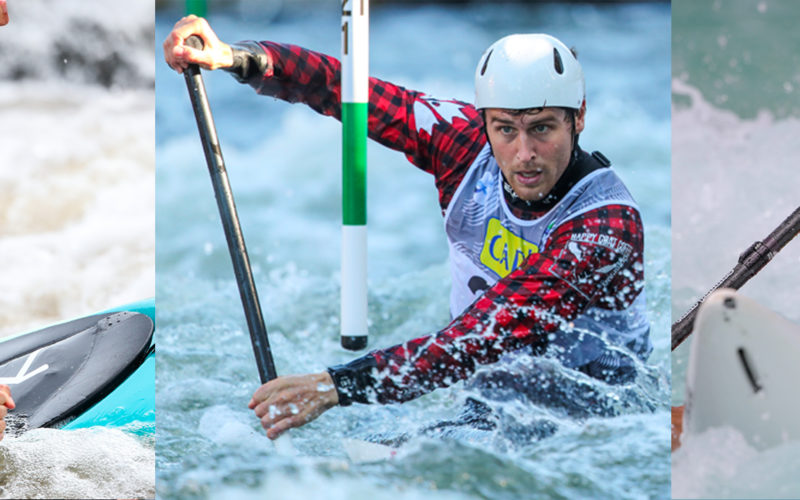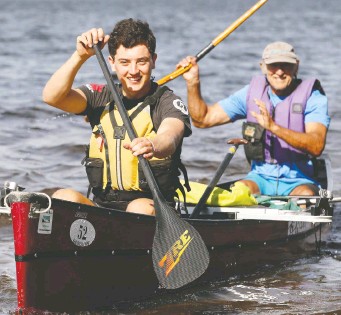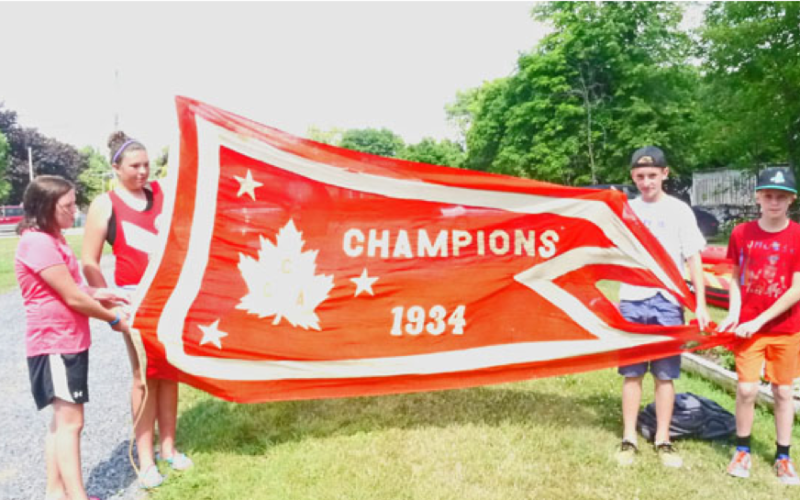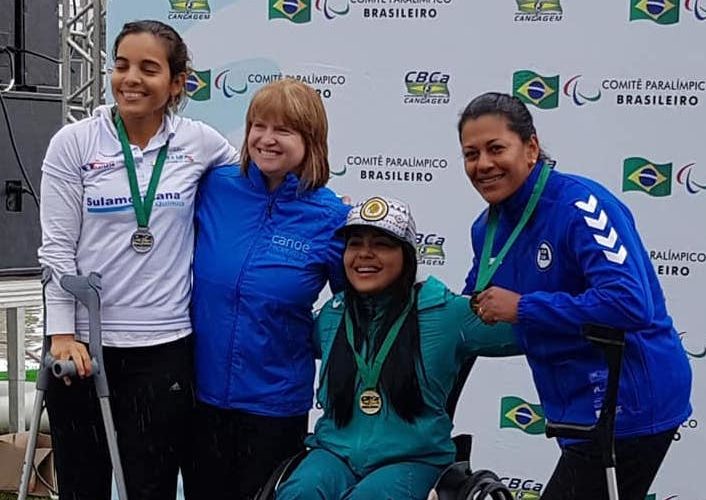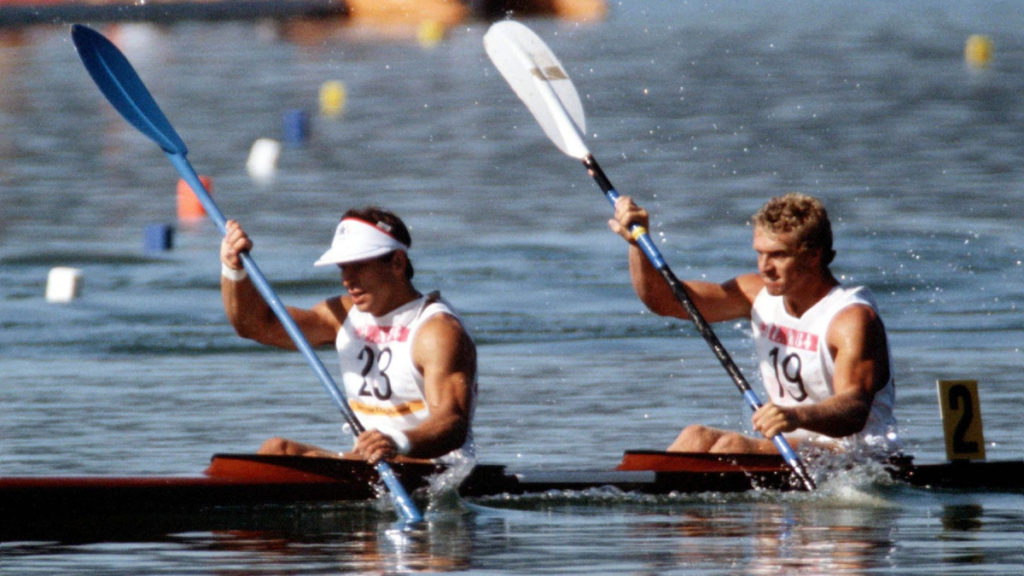
On March 22, 2020 The Canadian Olympic Committee (COC) and Canadian Paralympic Committee (CPC), backed by their Athletes’ Commissions, National Sports Organizations and the Government of Canada, made the difficult decision to not send Canadian teams to the Olympic and Paralympic Games in the summer of 2020, due to the COVID-19 pandemic. Olympian Hugh Fisher penned this letter to the Canadian Canoe Kayak National Team.
Dear National Team:
In 1980, Denis Barré and I ranked ourselves top 3 in the world.
In our minds we had a very good chance of winning Olympic Gold. The news of the boycott – a decision ironically at the time made by Justin Trudeau’s dad Pierre Trudeau and conveyed to us during Florida training camp – was a terrible and unexpected bombshell. We continued to train and race and won most of our pre-Olympic competitions. The awful moment came after a regatta in Poland.
At the Warsaw airport, our competitors – folks we had just beaten that weekend – got on flights and headed to Moscow. We got on flights and headed for home. A little group of us had alternate plans, and detoured to Spain to race in a series of long distance races which were just a lot of fun and gave us a chance to refocus and drink potent apple cider. While in Spain, we watched the Olympics and saw paddlers we had beaten in Bydgoszcz win medals.
We were young, angry, and frustrated. One of the things I had done at that time was to get deeply involved in the practice of mental training. Every night for a year, I had done mental rehearsal, used mental imagery of us winning gold again and again. By the time of the Games, I had an incredibly strong belief of our invincibility. The boycott destroyed that, like a painting painted on glass smashed by someone bent on vandalizing my future, my deepest core beliefs, values and dreams lay shattered.
Shattered by politicians.
Blame someone.
I became cynical.
I became careless.
I went back to school, taking on, for the first time, a full load. I cut back on training, and in the spring of 1981, I neglected some training principles and became injured. Though injured, I went to Florida and took along a folding lawn chair rather than a paddle. Everyone was mad that Fisher was broken. Barré -Fisher broke up. Barré paddled with Morris. Eventually because of my injury, I had to stop training completely. I missed the trials. I thought it was over. I coached the Canada Games group from BC, and I started to feel better. I found mental rehearsal, as I had practiced it, was too painful so just stopped it, forgot about it. Maybe through refocusing on something outside myself, helping these young kids reach for their own hopes and dreams and aspirations, and frankly just being with a crowd that didn’t take the whole game nearly as seriously as I had for years, I think I began to heal.
In the fall, Alwyn (Morris) was tremendously positive. He and Denis had finished 4th at the ‘81 Worlds. He wanted to train super hard. I juggled school a bit, trained super hard with him and almost unbelievingly started to enjoy training again. Unfortunately, 1982 was Denis Barré’s year to become injured. I eventually, albeit guiltily, raced with Alwyn. We were permitted to just hang around Europe all summer, which for us, meant training in the south of France. Amazing experience. At the Worlds, we finished second in 1000. On the 500, we caught a long strand of weeds having qualified just about the fastest and went out the back door. Amazingly to me, I took it in stride. It was as if the boycott bullshit actually made me value both the winning less, and get much less upset with losing. What really did it matter? What was important?
We went back home and trained even harder. At the ‘83 Worlds in Tampere, we drew a bad lane. In very unfair strong cross headwinds, the inside lanes were greatly sheltered. To this day, I remember halfway down the course submarining the bow under a wave, the wave breaking against the spray deck, and exploding over Alwyn soaking me in the back seat – the whole huge exploding watery bomb, glowing spectacularly in the sun.
Thinking we could take gold, we came sixth or something but I didn’t get upset. I didn’t drop kick the boat as I might have done in 1980. That winter we trained harder and smarter. In ‘84 the paddling gods smiled at us, but at those Olympic Games, though we thought we would win 500 gold. We did not. The world didn’t end. The sun came up the next morning. We raced again.
When I look back, the boycott was a terrible unexpected event far beyond our control. At the time, it shattered our dreams. I think if I had raced at the Olympics in 1980, we would have finished no worse than third. I think I would have been happy with that, quit, got on with my pre-med degree and gone down that route four years sooner in my life. The boycott changed the way I thought about sport and the way I thought about life in very positive ways. I think eventually when I got through the anger, I started to train smarter and harder and good things happened; some because of luck, some because of hard work and perseverance, and a lot because of the positive helpful supportive group around me.
I think as I have gone through life when unexpected terrible things happen, because of that experience in 1980, I am better at dealing with these novel, unexpected, awful experiences too. Even in writing this – 40 years after the event – my stomach churns and my jaw tightens with the unfairness of it all. In my case, that old platitude “what doesn’t kill you makes you stronger “ did apply. At the time, I struggled with keeping things in perspective, because I couldn’t. That is probably the lesson that I eventually learned and unexpectedly, unpredictably, that lesson stuck and contributed not only to our 1984 results, but to my life ever since. Over the years, I developed in my mind the concept of “path of the paddle,” which for me has meant that I am at my calmest, most positive, and most mindful out on the water.
So, get out on the water – our secret sanctuary. Landpeople don’t understand. Paddle far. Enjoy the sounds, the feel, the breathing, the balance, the joy of reaching far and deep and pulling, the waves, the wet, the group surfing along on the “socially distant” wash ride, the privilege, the solitude. Help each other, your families and your coaches manage the stress of this fucking Covid-19 and its fallout.
We will recover, the world will recover, and you will be even faster.
– Hugh
Two days later, on March 24, 2020, the IOC President and the Prime Minister of Japan concluded that the Games of the XXXII Olympiad in Tokyo must be rescheduled to a date beyond 2020. The Olympics are now expected to run in summer 2021.
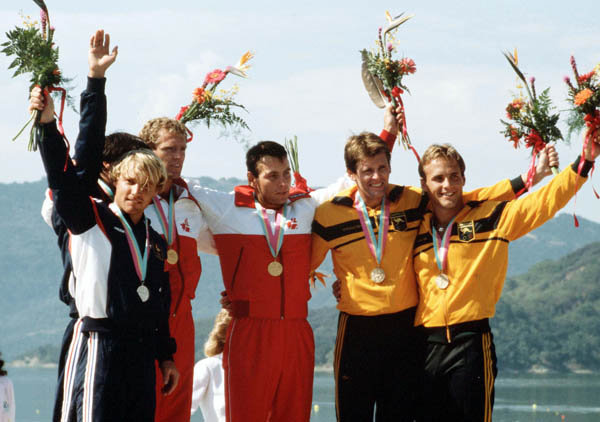
Hugh Fisher is a New Zealand-born Canadian sprint kayaker who competed from the mid-1970s to the late 1980s. He participated in three Summer Olympics: in 1976 in Montreal, Quebec, Canada; in 1984 in Los Angeles; and in 1988 in Seoul, Korea. He was also named to the 1980 Olympic team for Canada, but did not compete due to the Canadian boycott of those Games. At the 1984 Games with his racing partner Alwyn Morris, he won two medals, a gold in the K-2 1000 m and a bronze in the K-2 500 m events. Fisher and Morris also won medals at the ICF Canoe Sprint World Championships with silver in the K-2 1000 m in 1982, and bronze in the K-2 500 m in 1983.
In 1985, he was awarded the Order of Canada for his athletic achievements. In 1985, he was inducted into the British Columbia Sports Hall of Fame, and as of 2015 is the only sprint canoe or kayak athlete so honoured. He was inducted into the Canadian Olympic Hall of Fame in 1986, and to Canada’s Sports Hall of Fame in 2000. Fisher is a medical doctor residing in Pemberton, BC.
